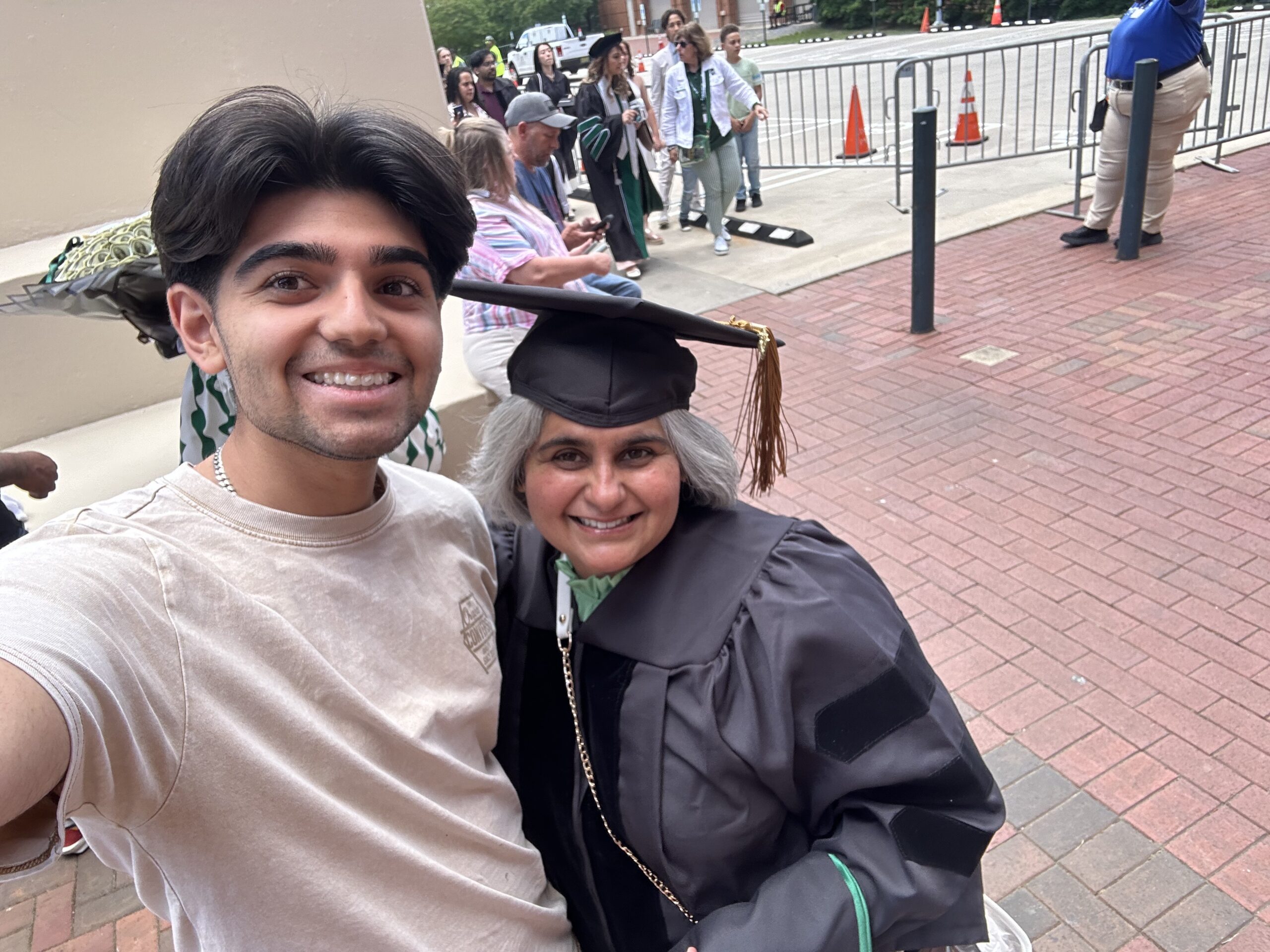Threading Stories: A Caldwell Fellows Journey Through New York City
Weaving our own journeys of belonging and identity into the rich tapestry of New York City’s immigrant narrative.
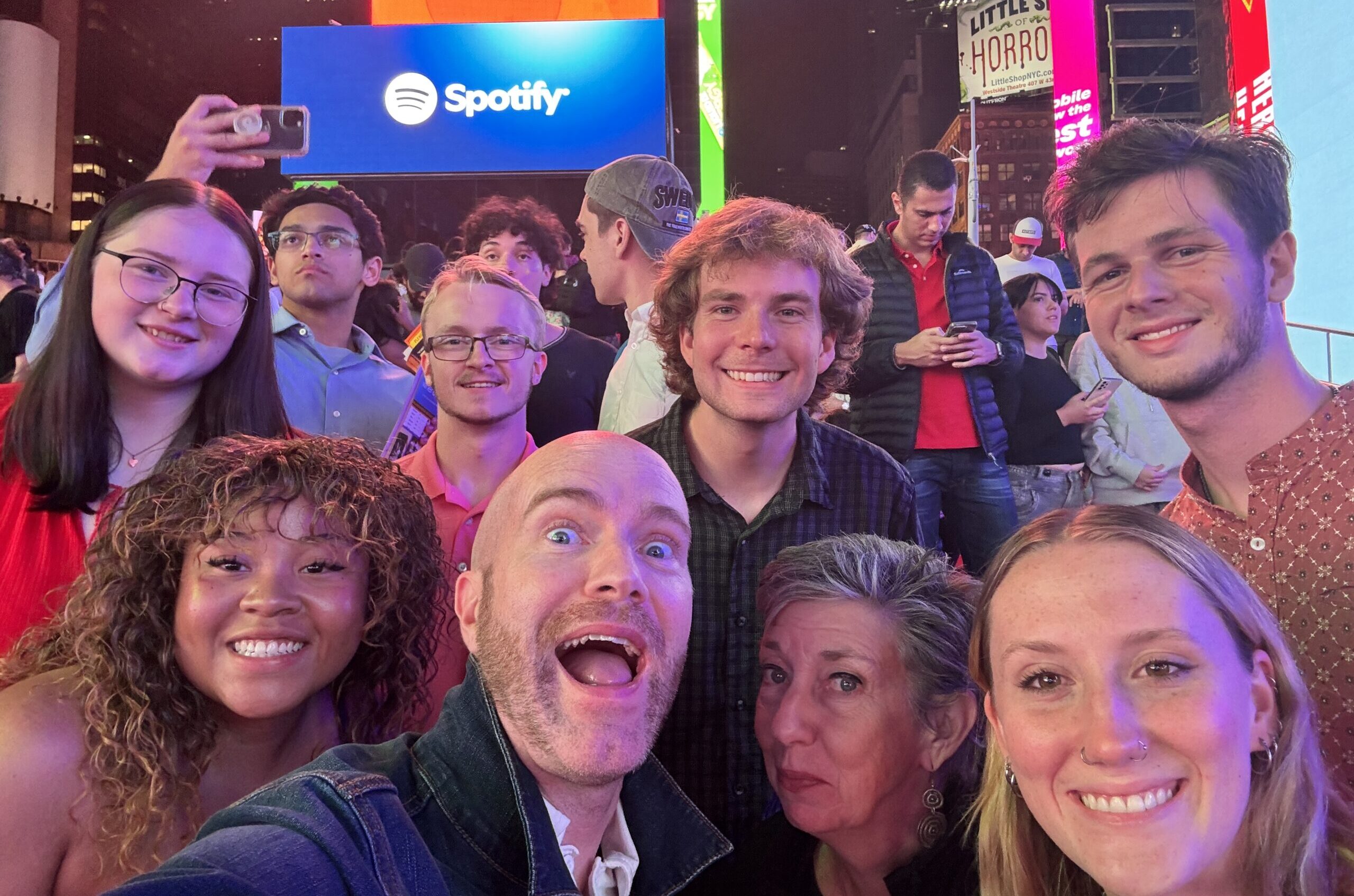
Oh, I see now that you all purposefully wove the thread of immigration and identity throughout everything we did today and now I see that I’m part of that thread
These words, spoken by one of our students to Dr. Brewer after Saturday evening’s Broadway performance, perfectly capture what made our recent New York City trip so powerful. Over three days in late August, our Caldwell Fellows didn’t just visit iconic landmarks—they discovered how their own stories connect to the larger American narrative of belonging, identity, and dreams pursued.
Friday: Alumni Connections Set the Stage
Our adventure began the moment we landed at 2 PM on Friday. Thanks to our resident NYC transit expert, Suchir Madap (Class of 2026), we navigated the subway system like seasoned New Yorkers, arriving at our hotel efficiently and ready for what lay ahead.
But the real magic started that evening at Clinton Hall 51, where we were joined by an incredible group of Caldwell Fellows alumni now calling the NYC area home: Edwin Anderson, Jennifer Martay, Kendra Simpson, Julia O’Brien, Kristy Lamb, Macy Robinson, Adam Schmidt, and Isaiah Akridge. What began as an informal mixer evolved into intimate dinner conversations as our current students broke into small groups, each led by an alum eager to share their post-graduation journeys and insights about life in the city.
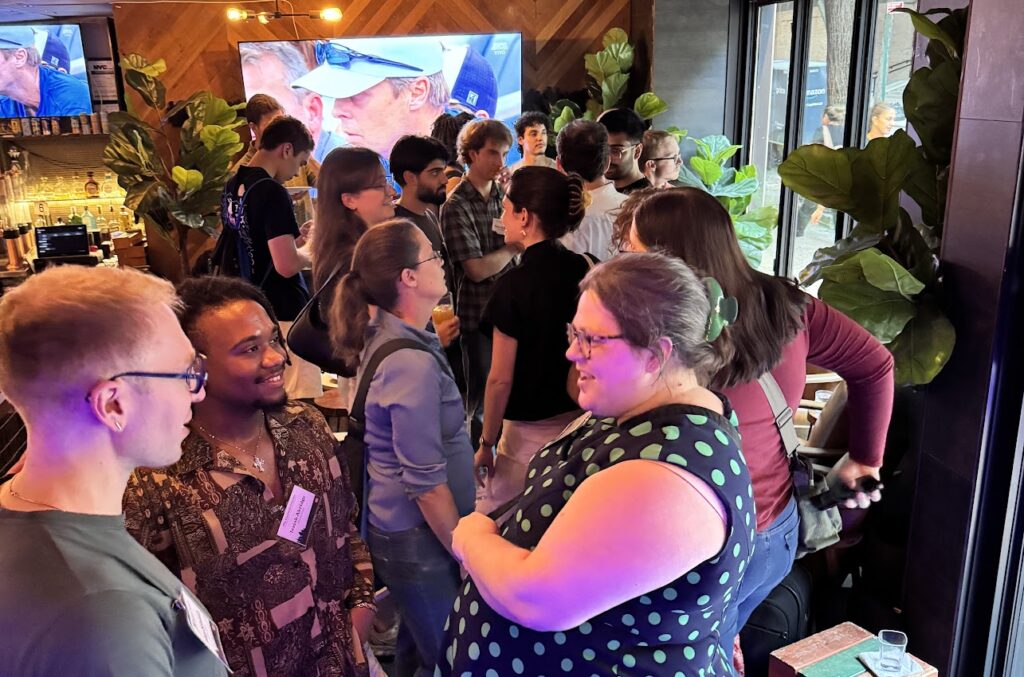
These connections reminded us why the Caldwell Fellows network extends far beyond campus—and how meaningful it is when that network shows up to support and guide the next generation.
Saturday: Following the Thread
Saturday dawned with beautiful weather and a carefully crafted itinerary exploring themes of immigration, identity, and cultural storytelling. Our first stop was the Tenement Museum, where students walked through the actual living spaces of immigrant families from the early 20th century.
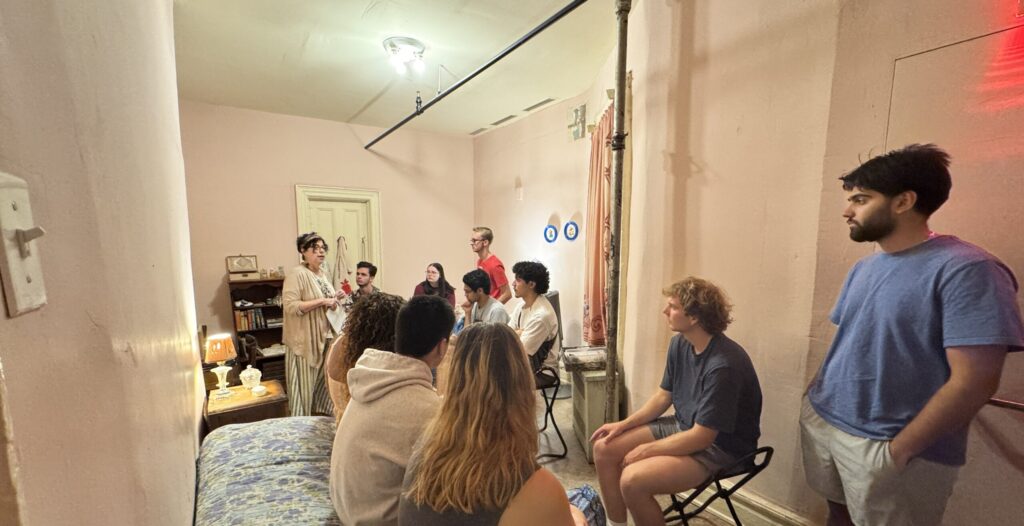
The stories were both particular and universal: a Jewish family escaping the Holocaust, a Puerto Rican family whose children served in Vietnam. As students stood in these cramped but hope-filled apartments, conversations naturally emerged about their own experiences with multilingual households, cultural integration, and the courage it takes to start over in a new place.
From there, we took the ferry to the Statue of Liberty, where our student experts shared the monument’s history, engineering marvels, and enduring symbolism. The transition to Ellis Island felt seamless—both geographically and thematically. Walking through the Immigration Museum, our students served as guides, explaining the 19th and early 20th-century immigration process that welcomed millions to America through this very port.
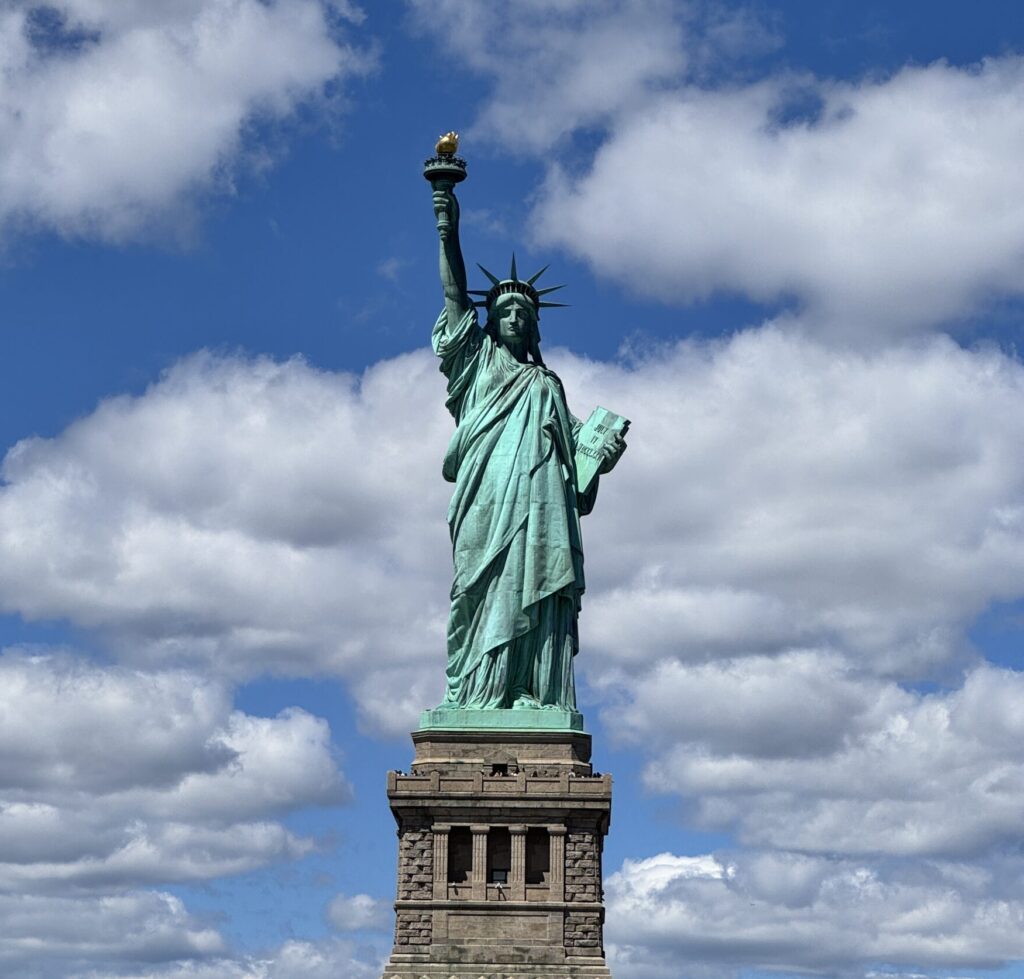
These moments of student-led learning were part of our Expert Topics assignment, where small groups had researched and prepared brief presentations on the NYC Transit system, Ellis Island, the Statue of Liberty, the history of NYC, and the Buena Vista Social Club. Rather than simply consuming information, our Fellows took responsibility for shared learning with their peers, exhibiting leadership by guiding reflective conversations at key moments throughout the day. This approach transforms students from passive observers into active educators, deepening their own understanding while contributing meaningfully to the group’s collective learning experience.
My great great grandmother, Winifred Price, traveled from England to Ellis Island, where she entered the country
But it was seeing the actual photographs, reading the personal stories, and standing where so many had stood before them that truly impacted our students. “My great great grandmother, Winifred Price, traveled from England to Ellis Island, where she entered the country” said Ella Murphy, Caldwell Class of ’26. The abstract concept of immigration became deeply personal as they connected these historical experiences to contemporary conversations about belonging and identity.
Saturday Evening: Stories Come Alive
Our day concluded with a Broadway performance of Buena Vista Social Club—a celebration of Cuban music and culture that brought our themes full circle. Here was yet another layer of the American story: how immigrant communities continue to enrich our cultural landscape through art, music, and performance.
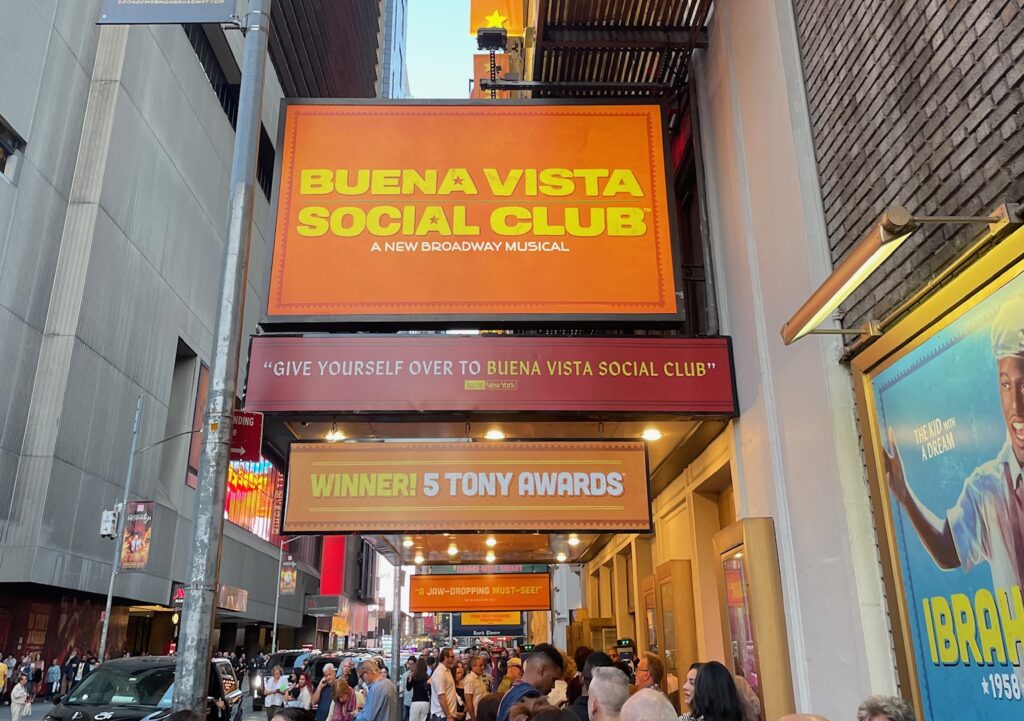
It was after this show that our student made the observation that became the heart of this reflection: recognizing how the entire day had been carefully designed to help them see themselves as part of the ongoing American story of immigration and identity. That moment of recognition—when educational design becomes personal revelation—is exactly what we hope for in transformative learning experiences.
Sunday: Individual Discovery
Sunday offered students the freedom to explore according to their own interests and curiosities. Some chose to walk the Brooklyn Bridge at sunrise with Dr. Odom. Others dove deep into world-class museums—the American Museum of Natural History, MoMA, the Met. Some took in panoramic views from Top of the Rock, wandered through Central Park’s green expanses, or explored the vibrant streets of Chinatown.
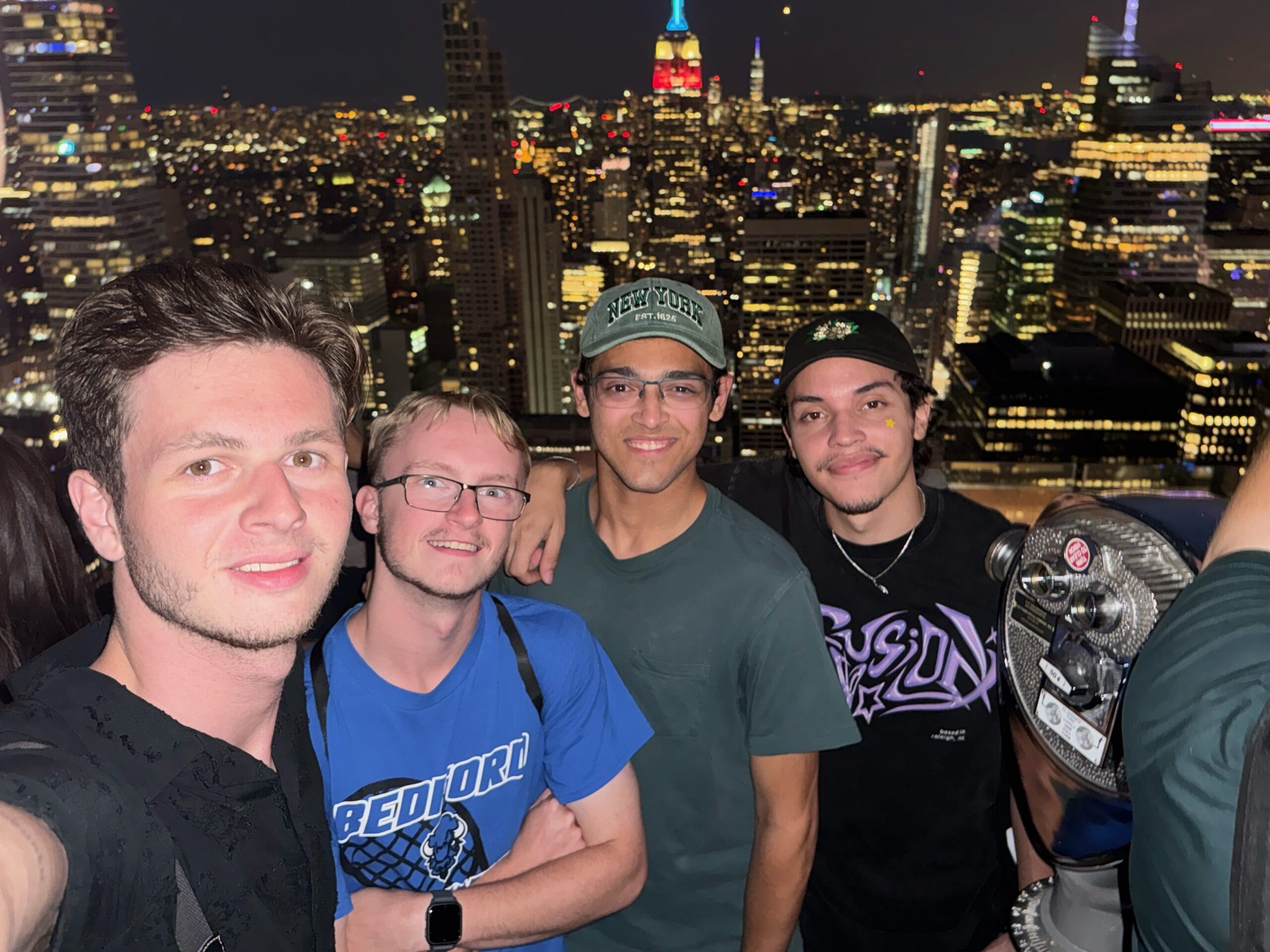
This balance between structured, thematic exploration and individual discovery allowed students to process Saturday’s experiences while pursuing their own passions and interests—a reminder that the best educational travel creates space for both guided learning and personal exploration.
Reflections on Belonging
As we flew home Monday, we carried with us more than memories of iconic sights and incredible food. Our students had spent the weekend not just learning about immigration and identity in the abstract, but seeing how these themes play out in real places, through real stories, and in their own lives.
The Caldwell Fellows Program has always been about developing thoughtful leaders who understand their place in larger communities and narratives. This New York experience reminded us that sometimes the most powerful learning happens when we help students see how their individual stories connect to the broader human experience of seeking belonging, pursuing dreams, and creating home in new places. “After over two years [at NC State], it has been reinforced time and time again the power that comes with being intentionally grateful for what life has given to us… Having the opportunity to learn about the immigrant experience really demonstrated how privileged I am to have been born and raised in a country where I have had so many resources at my disposal” reflected Matthew Menon, Class of ’27.
It has been reinforced time and time again the power that comes with being intentionally grateful for what life has given to us
Special thanks to Suchir Madap for his expert navigation skills, to our incredible NYC alumni for sharing their time and wisdom, and to all our students for their curiosity, engagement, and openness to seeing themselves as part of the continuing American story.The Caldwell Fellows launched the 2025–2026 academic year with a joyful dinner seminar that reconvened friends and highlighted the individual activities done over the summer.
The Caldwell Fellows Program develops exceptional undergraduate student leaders through a comprehensive four-year experience that includes academics, leadership development, and experiential learning opportunities like this New York City trip. Transformative experiences like this are made possible through the generous support of donors who contribute to our experiential learning endowments, ensuring that financial barriers never prevent our Fellows from accessing these life-changing educational opportunities.
- Categories:

